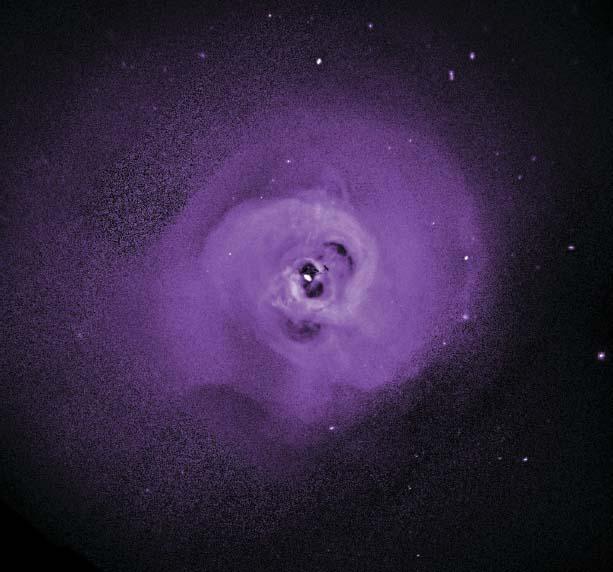Wednesday, February 22, 2023 - 3 p.m. to 4 p.m.
Morse Hall, room 301 -OR- Zoom
Speaker: Evan Yerger - Princeton University and Princeton Plasma Physics Laboratory
Full title: "An Effective Collision Operator for Heat-Flux-Generated Whistler Turbulence"
Abstract: Many astrophysical plasmas are strongly magnetized, despite their magnetic fields being energetically subdominant to the thermal energy stored in the particle motions - i.e. plasma beta >> 1. Many of these high-beta plasmas, e.g., the intracluster medium (ICM) of galaxy clusters, are also weakly collisional, with Coulomb mean free paths comparable to or even larger than the macroscopic gradients in the system. Under such conditions, a temperature gradient along field lines can induce a heat-flux-driven whistler instability (HWI), which limits the heat transport by scattering electrons.
In this talk, I will first present our results using the particle-in-cell code Tristan-MP to calculate the steady-state heat flux in a HWI-unstable plasma across a range of plasma beta and temperature gradient length scales. I will then detail how we obtain an effective collision operator for saturated HWI turbulence using three independent methods: a Chapman-Enskog method using distribution functions measured in the simulations; a quasi-linear method using the simulated magnetic energy spectrum; and a Fokker-Planck method using tens of thousands of tracked particles. In conjunction, I will discuss the limitations associated with each method and propose a model operator that is consistent with the results of each of the methods and the heat flux measured in our simulations. Finally, I will present ongoing work on a related ion-heat-flux-driven slow-mode instability and discuss its implications for heat transport in the ICM and low-luminosity accretion flows.
Schedule: Check out the rest of this season's Space Science Seminar Series, as well as previous recordings.

